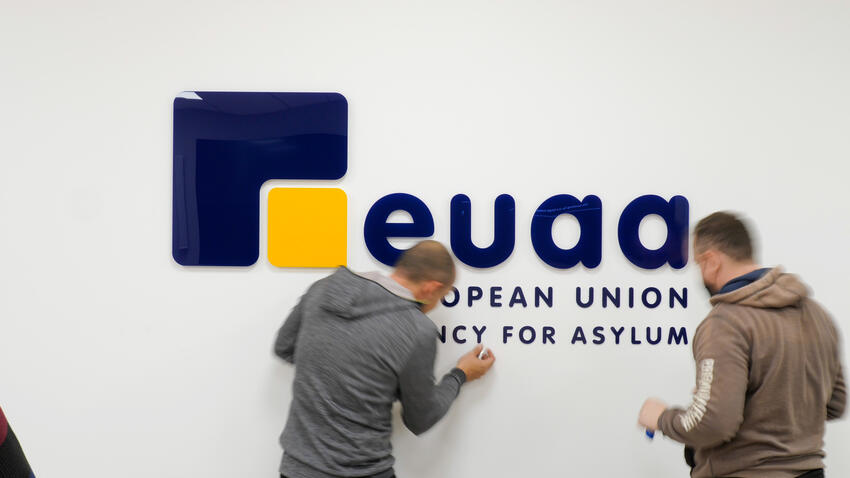The EUAA adds new EU Country Operation in Belgium
The EUAA signed its first Operational Plan of 2022 with the Belgian national authorities, becoming the 8th ongoing country operation (in addition to Greece, Italy, Cyprus, Malta, Spain, Lithuania and Latvia).
On the 5th of November 2021 the Belgian authorities contacted the EUAA with the request for support for the reception system under pressure. After 3 weeks only, the EUAA multidisciplinary team of operational, technical, and training experts was already in the field to conduct a joint rapid needs assessment.

The assessment was conducted in collaboration with the national authorities and the participation of different EUAA centres of expertise (Operational Support, Training and Professional Development and Asylum Knowledge Centres). The rapid needs assessment allowed to identify the needs in the Belgian reception system and discuss the possible support from the Agency to the local authorities.
Following the assessment, two weeks later, on the 31st of December 2021, an Operational Plan was signed by the Executive Director of the EUAA, Nina GREGORI, and the Belgian Secretary of State for Asylum and Migration, Sammy MAHDI.
Early February, an operational and technical visit was organized to kick-off the Operational Plan as well as to assess the sites and centres for material support and containers, involving the expertise of the Facility Management Sector and jointly with FEDASIL (Federal Agency for the Reception of Asylum Seekers).
In particular, Belgium’s reception system appeared under pressure for several reasons:
- Applications increased in the summer of 2021
- The occupancy rate in the reception system was up to 96% in September 2021
- The level of asylum applications exceeded the maximum absorption capacity of the national reception system.
- Among applicants, there was a high number of UAM (unaccompanied minors), with specific reception needs due to their vulnerability
Measure 1 of the Plan addresses short term needs, by enhancing the quality of the reception facilities through provision of material support (up to 150 reception containers) and human resources (deploying up to 21 experts and up to 25 interpreters to support national reception authorities). Measure 1 also foresees a training component for new personnel, to cope with emergency situations.
Measure 2 will support national authorities in the establishment of a modular emergency reception, with the necessary human resources to run the facility. The Operational plan also includes training to new and experienced personnel, according to their tasks, and also intends to support the delivery of national (FEDASIL) training modules.
Additionally, the second measure intends to respond in medium-long term to the pressure on the arrival process.

